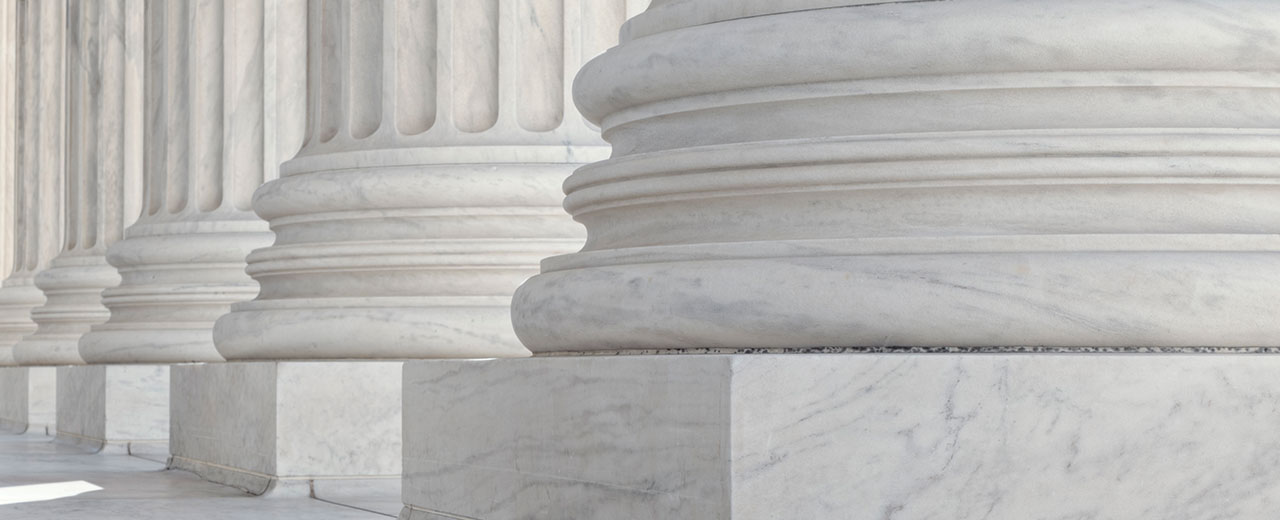Litigation During the Coronavirus
By Michael A. Delaney, Wilbur A. Glahn III, and Jennifer L. Parent (5/18/2020)
Impact of court closures
Like the shutdown of most businesses in New Hampshire and Massachusetts over the past two months, the COVID-19 pandemic has also resulted in disruption of both the state and federal court systems. Beginning in March, the courts entered a series of orders that closed the courts for most hearings, limited the number of participants in the hearings that are held, and extended deadlines or statutes of limitations. Although the courts are largely closed to visitors (with exceptions for certain domestic, family law, domestic violence, criminal cases and public health emergencies), electronic filing of complaints, motions and other documents remains available in all state and federal courts.
The chart found at the end of this article sets out the current status of events in these courts. Specific orders may be found as follows[1]:
- New Hampshire state: https://www.courts.state.nh.us/aoc/corona-covid-19.html
- New Hampshire federal: http://www.nhd.uscourts.gov/court-response-coronavirus-disease-covid-19
- Massachusetts state: https://www.mass.gov/guides/court-system-response-to-covid-19#-supreme-judicial-court-orders-
- Massachusetts federal: http://www.mad.uscourts.gov/
Trial practice during the pandemic and stay-at-home orders
The COVID-19 pandemic has postponed active trial practice inside our courthouses, except where hearings are scheduled by the courts for emergency reasons. As shown on the chart, state and federal courts have postponed nearly all trials, and particularly jury trials, since they are unable to bring groups of people into the courthouses. While most trials have been postponed, and many deadlines have been extended, other aspects of trial practice have continued in the same manner as before the pandemic closed the courts.
McLane Middleton’s trial lawyers have continued to file motions, and to take or defend depositions either by Zoom or other video practices. Video and telephonic hearings are taking place on a regular basis, and are expected to increase. Supreme Court briefings have continued without change, although oral arguments are being conducted by video.
There are some considerations to keep in mind while trial practice is largely virtual. First, where hearings require witness testimony, clients and lawyers will want to weigh whether to postpone video hearings to a date when the courthouses are holding in-person proceedings. Presenting documents to witnesses, evaluating witness demeanor, and observing the reaction of all parties (including the judge) is more difficult in a video presentation. Second, in video hearings without witnesses, attorneys will need to work carefully with clients to ensure that the technology will allow for an appropriate presentation. This requires careful planning and practice. Third, it may be more difficult to obtain injunctive relief in an environment where the virus appears to be the primary extraordinary event. Thus, careful consideration should be given to whether a demonstration of irreparable harm may be shown, and whether the court will be able to give the matter immediate attention. Fourth, where a jury trial has been requested, it is likely that the trial will be postponed for an extended period of time. All jury trials scheduled since March have been postponed, and it is expected that once jury panels become available, postponed matters and criminal proceedings will have priority. Finally, the court changes due to COVID-19 will put additional pressure on efforts to advance litigated matters and may cause both plaintiffs and defendants to resolve cases through the use of mediation, arbitration, or other means, in light of anticipated delays.
McLane Middleton’s Litigation Department has been monitoring and responding to these developments, studying and adopting to changes in technology, and continuing to advance cases during the pandemic. Those in litigation or considering initiating litigation need to be aware of some of these adjustments in a COVID-19 world. More information can be found on our Business Recovery page at www.mclane.com.
|
Court |
NH Superior |
NH Supreme |
NH Federal |
MA Superior and Supreme Judicial |
MA Federal |
|
Filing Deadlines |
Deadlines extended to May 4th but now apply except as extended for cause.[2] |
Not extended except on motion. |
If to expire in May, extended to July 1st. |
If expired between March 16th and June 1st, extended to June 1st.[3] |
No stated extensions, allowed by motion. |
|
Statutes of Limitation |
Extended to May 4th. |
N/A |
No extension. |
Tolled from March 17th to May 31st. |
No extension. |
|
Hearings
|
Suspended through May 25th.[4] |
April and May arguments via video. |
Court may schedule or reschedule at judge’s discretion (where held likely by video). |
Superior Courts determine—all virtual. Oral arguments in SJC by video. |
Court may schedule or reschedule at judge’s discretion (where held likely by video). |
|
Trials
|
Suspended through May 25th. |
N/A |
Postponed to July 1st. |
Continued until September. |
Continued until June 29th. |
|
Jury Trials |
Suspended until further notice. |
N/A |
Postponed to July 1st. |
Continued until September. |
Continued until June 29th. |
|
Access to Courthouse |
Emergency hearings only. |
Emergency filings only. |
Limited to necessary parties in emergency hearings. |
Closed until June 1st-except emergencies. |
Limited to necessary parties in emergency hearings. |
[1] These orders are subject to change as stay-at-home orders are extended or rescinded.
[2] Temporary injunctions or orders of protection that were to expire on May 25th are extended to May 26th. Deadlines for filing before May 4th will not be extended except for good cause.
[3] Injunctions set to expire between March 16th and June 1st remain in effect until rescheduled.
[4] In person proceedings will be limited to the necessary parties (attorneys, parties, witnesses and security officers).
